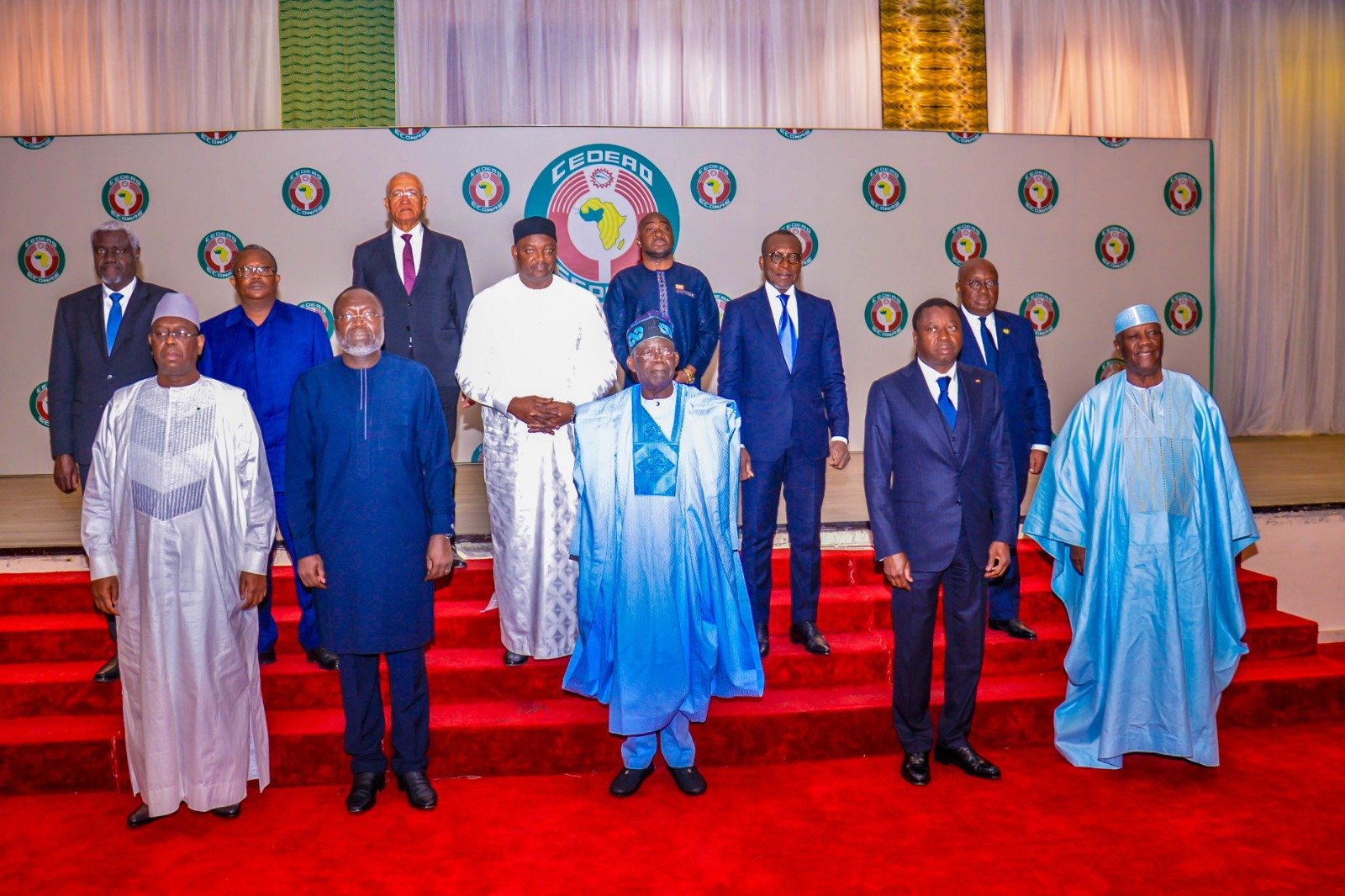In a landmark decision set to reshape the political landscape of West Africa, the Economic Community of West African States (ECOWAS) has officially acknowledged the withdrawal of Mali, Niger, and Burkina Faso from the regional bloc. The announcement was made through a communiqué issued at the conclusion of the 66th Ordinary Session of ECOWAS held in Abuja, Nigeria.
The session, presided over by Nigeria’s President Bola Ahmed Tinubu, brought together leaders from across the region to address pressing issues affecting member states. The President of the ECOWAS Commission, Omar Touray, read out the communiqué on January 29, 2024, signaling a pivotal moment in the history of the organization.

ECOWAS Approves Withdrawal of Mali, Niger, and Burkina Faso Amidst Regional Tensions: Tinubu Calls for Unity
Background: Strained Relations and Military Regimes
The three nations—Mali, Niger, and Burkina Faso—are currently governed by military regimes that came into power through coups in recent years: Mali in 2020, Burkina Faso in 2022, and Niger in 2023. These governments have expressed deep dissatisfaction with ECOWAS’s handling of their political situations, accusing the bloc of failing to support their fight against terrorism and overstepping in their internal affairs.
Relations have been fraught since the military takeovers, with ECOWAS suspending the memberships of these countries and calling for a swift return to democratic rule. The suspensions led to escalating tensions, culminating in the collective decision by the three nations to exit the regional organization.
In a joint statement, the countries described their withdrawal as an “irreversible” decision, citing a perceived drift of ECOWAS from its founding principles. They accused the bloc of becoming a tool for foreign powers and neglecting the security challenges that they face daily.
The Withdrawal Process and Transitional Period
According to Article 91 of the revised ECOWAS treaty, the withdrawal will officially take effect on January 29, 2025. Until then, a transitional period has been established, extending to July 29, 2025, during which ECOWAS will keep its doors open for potential re-engagement with the three countries.
Omar Touray emphasized the importance of continued dialogue:
“The authority decides to set the period from 29 January 2025 to 29 July 2025 as a transitional period and to keep ECOWAS’s doors open to the three countries during this time.”
He added that the bloc extends the mandates of President Bassirou Diomaye Faye of Senegal and President Faure Gnassingbé of Togo to continue their mediation efforts throughout the transition period.
Diplomatic Efforts Recognized
The communiqué commended the “exemplary diplomatic engagement” of Presidents Faye and Gnassingbé in mediating the situation. Their roles have been pivotal in maintaining open channels of communication and seeking a peaceful resolution to the impasse.
“The authority commends the exemplary diplomatic engagement of His Excellency Bassirou Diomaye Faye, President of the Republic of Senegal, and His Excellency Faure Gnassingbé, President of the Togolese Republic,” Touray stated.
Their continued involvement underscores ECOWAS’s commitment to unity and the reintegration of the departing member states.
Regional Implications and Future Relations
This unprecedented move raises concerns about the future of regional stability and cooperation in West Africa. The withdrawal of Mali, Niger, and Burkina Faso—countries that are strategically important and face significant security challenges—could have far-reaching implications for collective efforts against terrorism and economic development.
ECOWAS has directed the President of the Commission to prepare for the formal withdrawal after the deadline of January 29, 2025, and to develop a contingency plan covering political and economic relations with the three countries post-withdrawal. An extraordinary session of the Council of Ministers is scheduled for the second quarter of 2025 to finalize these plans.
President Tinubu’s Call for Unity
Amidst these developments, President Bola Tinubu called for unity and determination among ECOWAS member states. In his closing remarks, he praised the “spirited discussions” during the summit and emphasized the collective resolve to address the region’s challenges.
“We must remain steadfast in our commitment to the principles that bind us together,” Tinubu urged. “Our strength lies in our unity, and together we can overcome the obstacles that threaten our shared progress.”
Looking Ahead
As the transitional period commences, the focus will be on diplomatic efforts to heal rifts and possibly reintegrate the three countries into ECOWAS. The bloc’s openness to re-engagement indicates a desire to maintain regional cohesion and collaborative efforts against common threats.
Analysts suggest that the coming months will be critical in determining the future of regional integration in West Africa. The situation presents both challenges and opportunities for redefining relationships and strengthening the foundational principles of ECOWAS.
Conclusion
The official acknowledgment of the withdrawal marks a significant turning point for ECOWAS and its member states. The decision underscores the complexities of regional governance, especially when internal political dynamics and security concerns intersect with collective agreements.
As West Africa stands at this crossroads, the actions taken by both ECOWAS and the withdrawing nations will shape the region’s trajectory for years to come. The international community will be watching closely, hopeful that dialogue and diplomacy will prevail in fostering a stable and prosperous West Africa.
For more updates on West African politics and regional developments, stay tuned to our platform.


